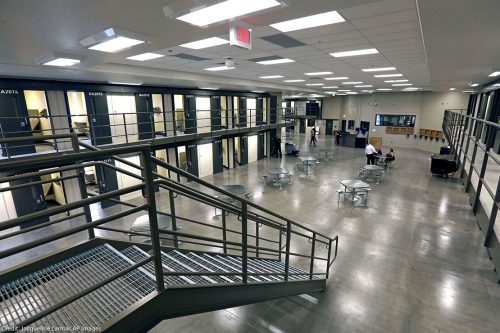

By Roxy Benson and Melinda Kukaj
NEW YORK CITY, NY – The U.S. Department of Housing and Urban Development (HUD) has proposed a new policy to keep people previously incarcerated safe from being barred from affordable housing based on past convictions, according to the Vera Institute of Justice.
The Vera Institute of Justice (Vera), founded in 1961 to advocate for alternatives to money bail in New York City and now a national organization, applauded former HUD Secretary Marcia Fudge, Acting Secretary Adrianne Todman, and the Biden-Harris administration for its commitment to ensuring access to safe and affordable housing for everyone.
Vera urged HUD to keep pushing forward with this process efficiently and finalize these regulations to protect people with conviction histories during the housing admissions process.
According to Vera, the “proposed regulations address long-standing barriers to housing and will have a significant impact on communities throughout the country if enacted.”
Vera stated, “HUD-subsidized housing providers and public housing authorities (PHAs) cannot automatically or categorically deny housing assistance to an applicant simply due to the presence of a recorded conviction, except where explicitly prohibited by federal law.”
Additionally, according to Vera, HUD-subsidized housing providers and PHAs may only take criminal histories into account that are applicable to the health and safety of residents and staff. Providers are also required to use individualized assessments to determine whether applicants present a potential risk to individuals or property.
Vera noted, “HUD-subsidized housing providers and PHAs are required to establish a lookback period; However, any lookback period longer than three years following criminal activity will be considered unreasonable by HUD standards.”
John Bae, director of the Vera’s Opening Doors initiative, said, “Decades ago, ‘tough-on-crime’ policies permeated all facets of our lives and the institutions that govern them. Housing was no exception. For too long, public housing authorities and other housing providers have used their wide discretion to bar people with records from housing.”
Bae added, “Communities of color, disproportionately impacted by mass incarceration, have felt the brunt of this discrimination…these policies do nothing more than reinforce the false myth that having a conviction history makes someone a bad tenant, and contributes to a vicious cycle of homelessness and incarceration.”
Bae presented statistics reinforcing this false myth, arguing formerly incarcerated people are 10 times more likely to be homeless, and people who are homeless are 11 times more likely to interact with law enforcement.
These particular proposed policies would tackle housing issues that have had and will have a large impact not only in NYC but all over the country, opined Vera Intuition of Justice.




